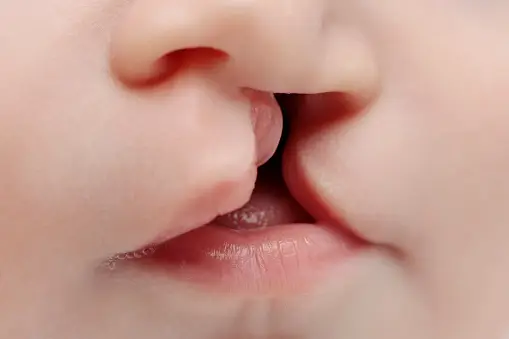Feeding your infant after cleft lip surgery can be both challenging and rewarding. With proper guidance and a few adjustments, you can ensure your baby receives the nutrition they need for healthy growth and recovery. At NJ Craniofacial Center, we’re here to support you every step of the way with expert care and personalized advice.
Understanding Cleft Lip Surgery and Its Impact on Feeding
Cleft lip surgery aims to repair your baby’s lip structure, improving both appearance and function. However, the recovery process can temporarily affect feeding due to:
- Mouth Sensitivity: Stitches and swelling may cause discomfort.
- Changes in Muscle Coordination: Your baby may need time to adjust to their repaired lip.
- Feeding Adaptations: New methods or tools may be necessary to avoid straining the surgical site.
Understanding these changes helps you provide the best care for your infant during their recovery journey.
Read More: Development And Evaluation Of Cleft Lip And Cleft Palate And Hearing
Essential Feeding Tips for Infants Before and After Cleft Lip Surgery
1. If possible, discuss plans for feeding with your plastic surgeon and hospital staff prior to the repair. Report these to your outpatient speech language pathologist and begin working on the new feeding protocol. Often syringe feeding may be requested.
2.At NJCFC - Attend therapy to train syringe feeding prior to repair
- Approximately 1 month before surgery attend speech therapy 2X weekly to train syringe feeding.
- Practice at home
2. Protecting the Repair
- Use specialized cleft palate bottles or syringe or soft, silicone-based nipples to avoid pressure on the surgical site.
- Hold your baby upright while feeding to prevent milk from entering the nasal passage.
- Burp your baby frequently to reduce gas and discomfort.
2. Maintaining Proper Mouth Care
- Gently clean around the surgical site with a damp cloth to prevent infection.
- Avoid using straws, sippy cups, or utensils that may put pressure on the repair.
- Follow any specific cleaning instructions provided by your healthcare team.
3. Adjusting Drinking and Eating Habits
- Start with liquids using specialized feeding tools to control milk flow.
- Gradually introduce soft, easy-to-swallow foods as recommended by your doctor.
- Encourage small, frequent feedings to ensure adequate nutrition without straining your baby.
Post-Surgery Considerations
Using Arm Splints
Arm splints can prevent your baby from touching their face and disrupting the healing process. Consult your healthcare provider to ensure the splints are fitted properly and used safely.
Managing Activity and Play
- Choose gentle activities that don’t risk injury to the surgical site.
- Offer soothing play options like reading, singing, or soft toys.
- Monitor energy levels and adjust activity to suit your baby’s comfort.
Pain Management
- Administer prescribed pain medications as directed by your doctor.
- Watch for signs of discomfort and report concerns promptly.
- Keep a calm environment to help soothe your baby during recovery.
Feeding Guidelines After Palate Surgery
If your baby has undergone palate surgery, these additional tips can help:
- Positioning: Always feed your baby in an upright position to prevent milk from entering the nasal cavity.
- Specialized Tools: Use feeding bottles or syringes designed for post-surgery needs.
- Frequent, Small Meals: Offer smaller portions to ease digestion and reduce discomfort.
- Monitor Intake: Keep track of your baby’s feeding progress and weight gain to ensure proper nutrition.
- Avoid Straws and Regular Cups: Stick to recommended feeding tools until cleared by your healthcare provider.
Supporting Your Baby’s Recovery
Key Takeaways
- Keep your baby upright during feedings to protect the surgical site.
- Use specialized feeding equipment to ensure safe and comfortable feeding.
- Gradually introduce soft foods while monitoring progress.
- Pay attention to your baby’s weight gain and overall health.
- Follow your doctor’s advice for a smooth recovery.
By following these tips and maintaining open communication with your healthcare team, you can help your baby recover comfortably and thrive after cleft lip surgery.
Why Choose NJ Craniofacial Center?
At NJ Craniofacial Center, we specialize in providing compassionate care for infants recovering from cleft lip and palate surgery. Our expert team is dedicated to helping your baby achieve optimal health and well-being through personalized treatment plans and support.
Schedule an Appointment Today
For expert guidance on feeding your baby after cleft lip surgery, contact NJ Craniofacial Center. Schedule an appointment online or call us to ensure your child receives the best care during their recovery.


